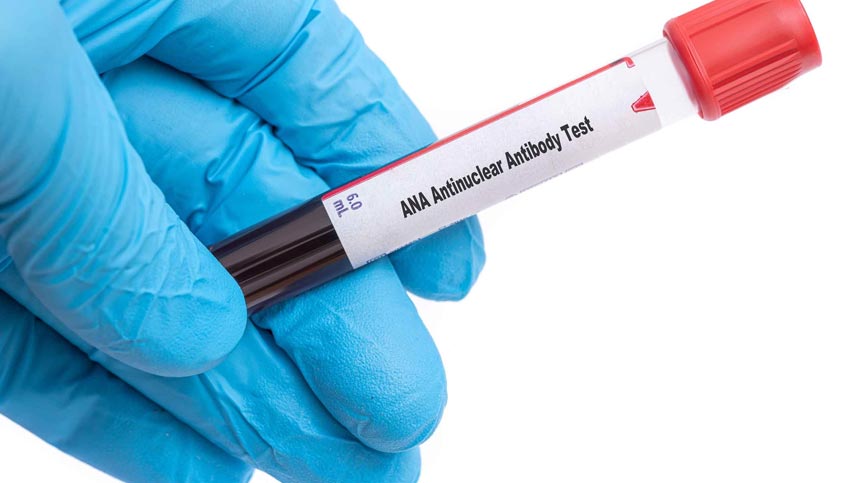

Understanding the Antinuclear Antibody (ANA) Test: Its Role in Diagnosing Autoimmunity

Autoimmune diseases occur when body’s immune system mistakenly attacks its own tissues. These diseases can be difficult to diagnose, as they often present with vague symptoms that can be mistaken for other conditions. The Antinuclear Antibody (ANA) Test is a blood test that is used to help diagnose autoimmune diseases, such as Rheumatoid arthritis, Myasthenia gravis, Sjögren syndrome, autoimmune hepatitis, etc.
What is the ANA Test?
The ANA test is a blood test that measures the presence of antibodies that bind to the nucleus of a person's own cells. When someone has an autoimmune disease, their immune system mistakenly targets their own cells, including the nuclei. The ANA test detects the antibodies that are present when this response occurs.
Why is an ANA Test Done?
An ANA test is typically done when a person shows symptoms that are suggestive of an autoimmune disease, such as joint pain, rash, or fatigue.
Symptoms
Symptoms will vary, based on the type and location of the faulty immune response. Common symptoms include:
- Fatigue
- Fever
- General ill feeling (malaise)
- Joint pain
- Rash
Positive results on the ANA test can help doctors diagnose conditions like lupus, rheumatoid arthritis, and scleroderma.
How is the ANA Test Performed?
The ANA test is a simple blood test that involves taking a small sample of blood from a vein in the arm. The sample is then sent to a lab for analysis. In most cases, a positive result indicates the presence of autoimmune antibodies. However, it's important to note that a positive result on the ANA test doesn't necessarily mean a person has an autoimmune disease. Further testing may be needed to make a definitive diagnosis.
What are Normal ANA Test Results?
The normal range for the ANA test is generally considered to be a negative result, meaning that no antibodies were detected in the blood sample. However, it's important to understand that false negatives can occur, especially in the early stages of an autoimmune disease. This is why it's important to closely monitor symptoms and be retested if necessary.
What do Positive ANA Test Results Mean?
A positive result on the ANA test means that antibodies against a person's own cells were detected in their blood sample. This may indicate the presence of an autoimmune disease. However, positive results can also be seen in healthy individuals or those with other conditions like infections or cancer. A diagnosis of an autoimmune disease cannot be made based solely on a positive ANA test result, but it can be an important starting point to further investigate potential autoimmune disorders.
Conclusion
The Antinuclear Antibody (ANA) test is a valuable tool in the diagnosis of autoimmune diseases. It helps healthcare providers to better understand the root cause of a patient's symptoms and help them find an appropriate course of treatment. While a positive ANA test result doesn't necessarily mean a person has an autoimmune disease, it can serve as an important starting point for further testing and monitoring. Knowing the basics of the ANA test and its significance can be an advantageous tool for individuals that may be experiencing symptoms of an autoimmune disease.
WANT TO BOOK HEALTH CHECKUP ?
Recent Blogs
Understanding Hepatocellular Carcinoma: Diagnosis and Staging
Hepatocellular carcinoma (HCC) is a type of liver cancer that usually affects individuals...
30-11-2023
Protecting Your Skin: Vital Tips for Sun Safety and Self-Examinations
Summer is here, and we all are ready to soak up some sunshine after long and dreary winter...
30-11-2023
Preventing Liver Cancer: The Role of Hepatitis Vaccination
Liver cancer is a deadly disease that affects millions of people worldwide. While there...
30-11-2023








